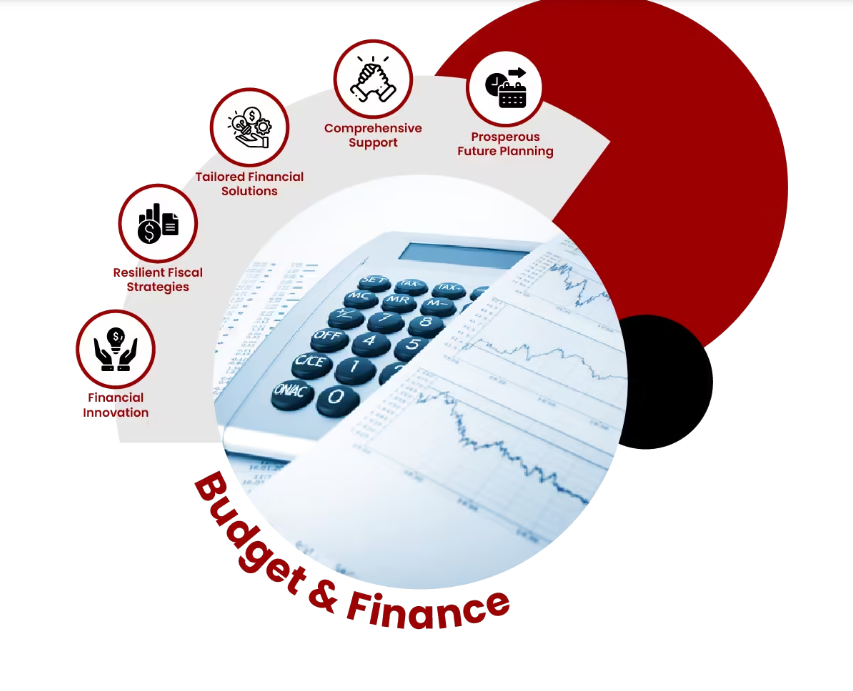When it comes to running a school or a district smoothly, nothing matters more than how money is planned and spent. Budget and finance decisions affect every corner of a school—from how many teachers are hired to whether the buildings are safe and well-equipped. Good financial planning doesn’t just make things easier; it builds a strong foundation for the future.
The Role of Budget and Finance in School Success
Budget and finance are at the core of every school’s operations. Whether you’re managing a single school or an entire district, financial planning is necessary to keep everything running. It’s not just about numbers. It’s about making sure students have what they need to succeed, and teachers are supported in their work.
Poor budget planning can lead to staff cuts, old textbooks, or cancelled support services. On the other hand, strong financial management can create a positive, well-resourced learning environment. That’s why budget & finance must always be a top priority.
Why Budget Planning Needs to Start Early
Many schools wait until the last minute to review their financial plans. This approach can lead to rushed decisions, errors, or missed opportunities. Budget and finance planning should start months before the new school year begins.
When schools plan early, they can take a clear look at past spending, current needs, and expected costs. They can also be ready for changes in funding, such as reductions in state support or shifts in student enrolment numbers.
Making the Most of Limited School Funds
Most schools work with limited budgets. That means every pound must be used wisely. The key to success is setting clear priorities. Spend on what matters most: quality teaching, student well-being, safety, and support systems.
Budget and finance planning should include regular reviews to spot where money is being wasted. For example, old contracts, outdated software, or underused services may cost more than they help. Cutting these costs can free up funds for areas that need more support.
Transparency Builds Trust in Budget and Finance
School leaders and finance teams should be open about how money is being spent. Staff, parents, and local communities want to know that school funds are used responsibly. This doesn’t mean publishing every receipt, but giving clear updates on major spending areas is important.
By being transparent with budget & finance information, schools can build trust and avoid misunderstandings. If cuts or changes are needed, open communication can also help ease concerns and explain the reasons behind decisions.
Involving Staff in Budget Discussions
Budget and finance planning shouldn’t be limited to accountants and administrators. Teachers and support staff often know where money is most needed, or where things can be done more efficiently. Including them in discussions can lead to smarter decisions.
Simple ways to involve staff include surveys, suggestion boxes, or regular meetings where budget topics are discussed. When staff feel heard, they are more likely to support the school’s financial direction and help make it work.
Tracking Spending the Smart Way
Keeping track of school spending is vital. Too often, schools get into trouble not because they overspent, but because they lost track of where the money went. A good tracking system keeps everything in order.
There are many easy-to-use digital tools available today that help schools stay on top of their budget and finance records. Even if your school still uses spreadsheets, the most important thing is to update them regularly and review them often.
Planning for the Unexpected
Even the best budget & finance plan can be shaken by unexpected costs. Whether it’s a building repair, emergency supplies, or funding cuts, schools need a backup plan.
Setting aside a small emergency fund can save a lot of stress later. It doesn’t have to be a large amount, but knowing there’s something to fall back on gives peace of mind to school leaders and staff alike.
Budget and Finance and Long-Term Goals
Good schools don’t just think about next year. They think five or ten years ahead. Budget & finance planning should be part of long-term goals such as improving school buildings, adding new programs, or investing in technology.
It’s helpful to have a three- or five-year financial plan that looks beyond the current school year. This type of plan helps schools avoid sudden changes and supports steady progress.
The Importance of Accurate Data in Budget and Finance
Budget and finance decisions are only as good as the data behind them. If enrolment numbers are wrong or cost estimates are outdated, the whole plan can fall apart.
Schools should always double-check the information they use for financial planning. This includes student numbers, staff wages, supply costs, and more. The more accurate the data, the better the decisions.
Getting Support When Needed
Managing budget and finance is not easy, especially for small schools or districts. There is no shame in asking for help. Expert consultants or school finance specialists can offer advice and support.
They can review your budget, spot problems, and suggest changes. Sometimes, an outside point of view can make all the difference.
Ready to Take Control of Your School’s Budget and Finance?
If you’re looking to improve your school’s financial health and make smarter planning decisions, Total School Solutions is here to help. Our expert team works closely with school leaders to build strong, realistic budgets that support both short-term needs and long-term goals.
Contact us today to schedule a consultation and start making your budget and finance work for the success of your students, staff, and entire school community.
📞 Call us at +1 (707) 422-6393
📧 Email us at aahad@totalschoolsolutions.us🌐 Visit us online at totalschoolsolutions.net
